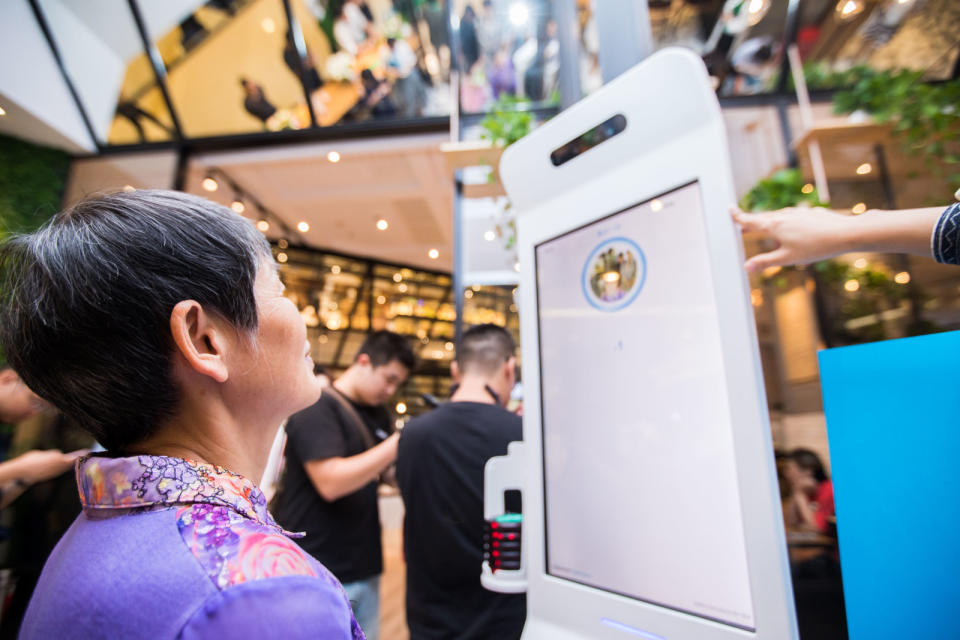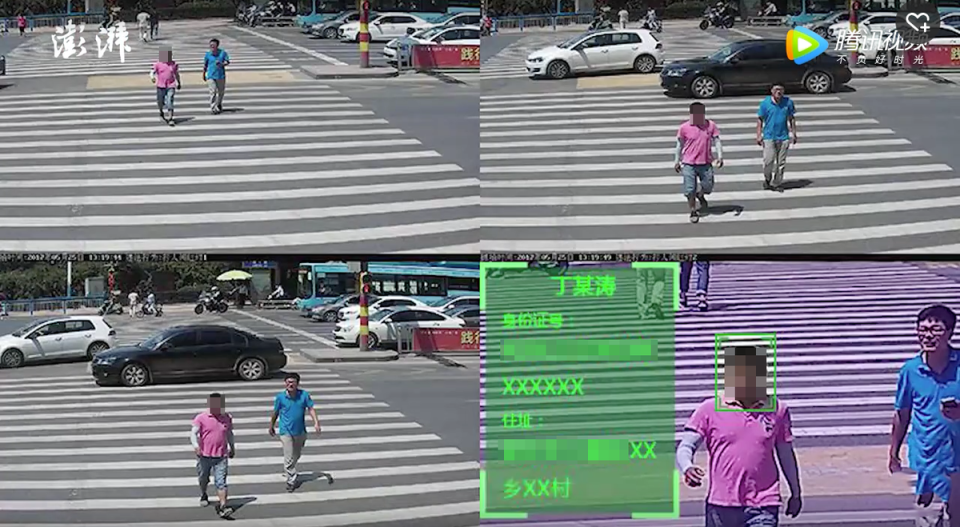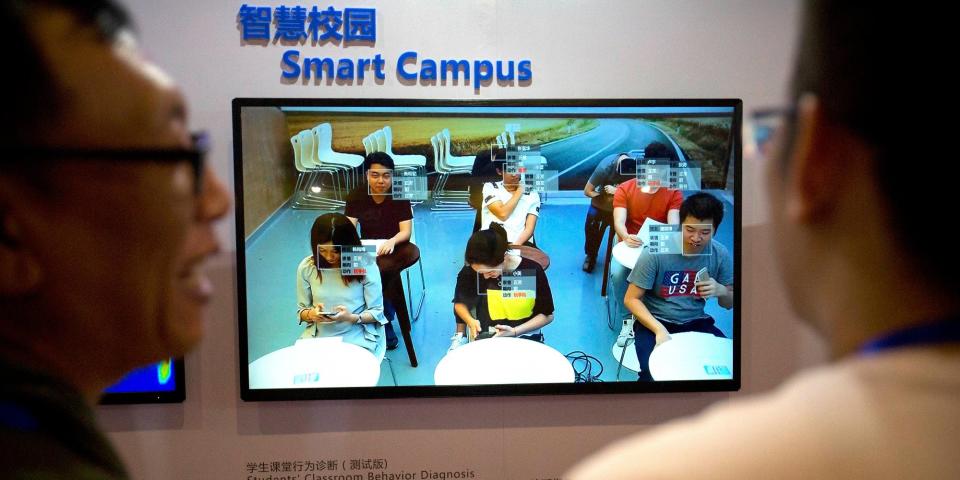All the things consumers can do with facial recognition in China
Guests at Marriott International in China may soon be able to check in with their faces. The hotel chain is working with e-commerce giant Alibaba to test facial recognition check-ins at two Chinese hotels this month.
China has been ramping up the use of facial recognition, with the technology trickling down to consumers through an array of industries.
Here’s a list of how far your face will take you in China:
Buy fried chicken
In this KFC store in Hangzhou, China, you can use a “Smile to Pay” facial recognition system. The initiative was launched in September last year and is targeted at younger generations. Diners can pay by scanning their face at an ordering kiosk and entering a phone number.

Enter the subway
In June, Beijing also tested facial scanners (and palm scanners) in its underground subway. The move is aimed at easing congestion issues and stemming fare evasion. Chinese newspaper Guangzhou Daily reported that the technology had been set up at three stations so far.
Get caught for jaywalking
Last year, Chinese police began to use facial recognition to scan the faces of people who jaywalk at major intersections and display the images on large LED screens for all to see. Authorities also send a text message with a fine when offenders reach the other side of the road.

Withdraw money from the ATM
In September last year, several banks in China added face scanners to their ATM machines. Customers at the Agricultural Bank of China, China Merchants Bank, and others can press the facial recognition withdrawal button, scan their face, enter their phone number or ID number, and go ahead with the withdrawal.
Go to school
Also in June, Peking University installed a face scanner at its southwestern gate. Students passing through no longer need to show their ID to the security guards and, instead, can just get access with a face scan.

Check in to your ride-sharing driver account
After a driver allegedly killed a passenger in China in May, ride-sharing app Didi Chuxing rolled out facial recognition that drivers must use to verify their identity before each trip.
Get caught sleeping in class
A school in Hangzhou recently installed three cameras on top of the blackboard for an 11th-grade class. The camera was used to capture the students’ facial expressions to determine whether they were enjoying the class — and paying attention.
A student told the local newspaper that the “pair of mystery eyes constantly watching [him]” put him off taking naps on the desk or flicking through other textbooks.

Get caught for a bogus marriage
In January, Beijing Youth Daily reported that the Marriage and Adoption Registration Management Center in Chongqing was introducing facial scanners to ensure that newlyweds’ ID cards match up with their faces on a police database.
Obtain toilet paper
As part of a “toilet revolution” in China, which is the government’s effort to upgrade public facilities, Beijing’s 600-year-old Temple of Heaven’s administrators used facial recognition to stop people from taking excessive amounts of toilet paper. After a face scan, a patron will get only one 60-centimeter portion of toilet paper every nine minutes.

Find lost relatives
In April, a mentally ill man who had been missing for over a year was found wandering around, confused, at the Chongqing railway station. After hospital officials who found him contacted a facial recognition firm, they were able to identify the man and reunite him with his brother.
Board a plane
Since last year, passengers at the Nanyang Jiangying Airport in Henan province can check in and board China Southern Airlines flights with a scan of their face, according to the South China Morning Post. The airline said it plans to roll out the technology at more airports.

Check in to your home-share
Those using China’s biggest home-sharing startup have been able to check in with their faces since last December. Xiaozhu introduced the technology to satisfy laws requiring identity verification.
We will update this post with new use cases as they become available.
Read more:
